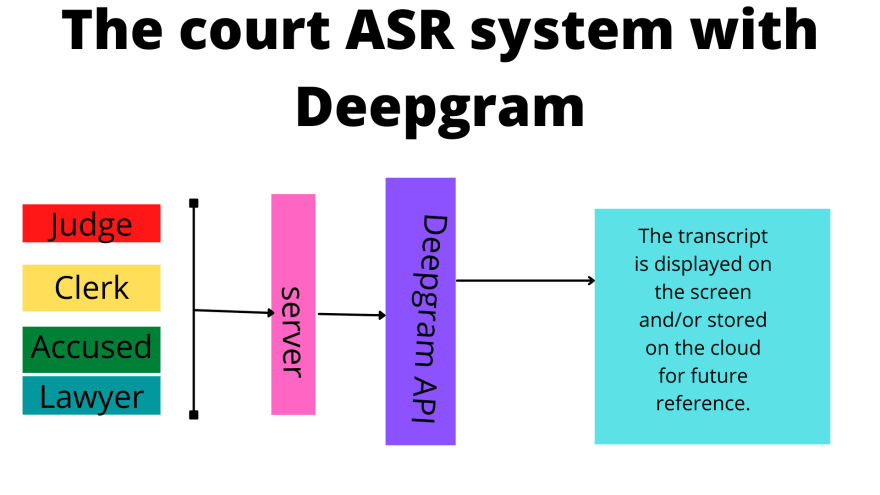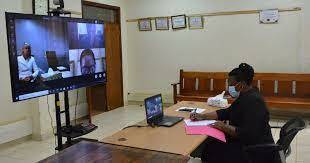IMPROVE ACCESS TO JUSTICE WITH DEEPGRAM

programa mkenya
Posted on April 2, 2022

Introduction
Most hackathons don't really give us an opportunity to write. You can guess how excited I was when I came across this one here. I had to do it, I had to write. My submission is in the "innovative ideas "category. My task was to come up with a new idea on how we can can put Deepgram to good use. Though having interacted with speech recognition technology before, working with the Deepgram API over the last month has opened my eyes to just how much is possible with this technology.
My Deepgram Use-Case
Court reporting and legal transcription are primed to adopt AI and automation. Traditionally court proceedings have been recorded by court clerks who are normally seated quietly in court, writing shorthand that will later be converted into a transcript. But as the old saying goes, to err is human, but we don't want that now, do we? Especially in situations as sensitive as this where people might go to jail for ages or the guilty parties get released. The court assistants find it hard to be fast and accurate when recording data. Speed and accuracy are what are required to get the best possible transcripts. The Deepgram API is above all its competitors, head and shoulders on these two qualities. With accuracy as high as 95% and the ability to get the transcript results in real-time, a speech to text software system designed with Deepgram to provide excellent transcripts in court is exactly what is needed.
Dive into Details
The speech to text system made using the Deepgram API ,will record audio and send it to the server. The server then forwards the audio to the Deepgram API, transcribing the audio. The transcribed audio is then displayed on a screen and stored in the drive and the cloud. It can be accessed and printed on request. The court participants will each speak into microphone before them or a device that ensures all audio is well heard.
Court proceedings have also found their way online over the last two years, largely due to the Covid-19 pandemic. The said system should therefore be able to handle live-streamed and pre-recorded court hearings.
Apart from the fact that such a system will improve the speed and accuracy of court recordings, the benefits will also be felt by the entire judicial system. Some of the advantages will include:
- Minimized dependency on Support staff
- Low cost of operation
- Streamlined documentation
- Much easier remote legal proceedings.
- Increased capacity to handle more clients.
Cases of denied justice because of missing court records and proceedings are much more common than you would imagine in this part of the world. I live in Kenya, Africa. This is largely due to poor documentation and, in some cases, no documentation at all.
These two cases here, the first one in Kenya(case one)where one Simon Kimani is on the verge of losing his case because his court files are missing. And another one further South in Zimbabwe, where Mr Chihera can't find a way to appeal his 30-year sentence because after 15 years, there is no record available. The worst part is no one even knows who the sentencing judge was. (case two)
With a speech to text system like the one proposed above, cases like Kimani's and Chihera's will be a thing of the past.
Conclusion
My participation in this hackathon has been great. Moving forward I will surely keep an eye on what is happening in the speech-to-text technology space. I have also learned a lot from the submissions made by others in my category. And who knows? Maybe after I am done writing about the said system I might make it myself. We will have to wait and see.

Posted on April 2, 2022
Join Our Newsletter. No Spam, Only the good stuff.
Sign up to receive the latest update from our blog.
Related

April 11, 2022






